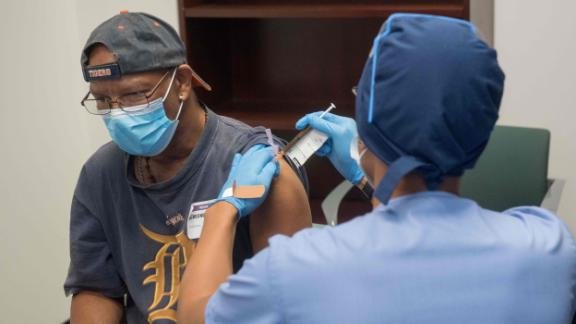Moderna to seek FDA emergency authorization after virus vaccine is 94% effective in final analysis

NEW YORK, NY -- Moderna announced Monday it will ask the Food and Drug Administration for emergency use authorization (EUA) for its Covid-19 vaccine, making it the second company, after Pfizer, to seek EUA for a Covid-19 vaccine in the United States.
Pfizer's public FDA hearing -- a crucial step in the authorization process -- is scheduled for Dec. 10, and the FDA could make its official authorization decision shortly thereafter.
Among the more than 30,000 volunteers in Moderna's Phase 3 trial, 196 ultimately developed COVID-19, but the vast majority of those COVID-19 cases happened among volunteers who had been given a placebo injection -- an imbalance hefty enough for biostatisticians to feel confident the vaccine is highly effective.
"The newly published results from Moderna confirm our enthusiasm for the prospects of their vaccine," said Dr. John Brownstein, an epidemiologist, chief innovation officer at Boston Children's Hospital and contributor to ABC News.
Pfizer said its vaccine was 95% effective in the final analysis, but it had a different number of COVID-19 cases in its trial, so the percentages shouldn't be compared head-to-head without context, experts say.
"The results of both trials are just amazing," said David Benkeser, an assistant professor of biostatistics and bioinformatics at Emory University Rollins School of Public Health.
He added that "94.1% and 95% are statistically indistinguishable at this point, probably coming down to a difference of just one or two cases of COVID-19."
"We do have to be careful not to over-interpret these data, especially when in comparison to the Pfizer analysis," Brownstein cautioned.
Moderna has promised to publish full details from the trial through a formal scientific review process. Additional details about the trial will become available through the FDA's review process, which the agency has pledged will be transparent to the public.
"While 94.1% efficacy is phenomenal, we are still dealing with small sample sizes and likely we will see differences in vaccine effectiveness when deployed in the population," Brownstein said.
But Monday's press release included some new details about Moderna's vaccine, including the fact that it appears to be equally effective among people of different races, ethnicities, ages and genders.
Among the 196 people who developed COVID-19 in the trial, 33 were older adults (ages 65 and up), 29 were Hispanic or Latino, six were Black or African American, four were Asian American and three were multiracial.
Moderna is also claiming that the Phase 3 data shows the vaccine was highly effective at preventing more severe cases of COVID-19. According to the press release, 30 out of the 196 volunteers developed severe illness, but all 30 were among the group of volunteers who got the placebo shot. This shows the vaccine demonstrated 100% efficacy at preventing severe COVID-19, according to the company.
According to Benkeser, this isn't enough data to prove Moderna's vaccine will prevent severe illness in every single person who receives it, "however, it is common for vaccines to be more effective against severe disease than mild disease," he said.
"The idea is that though a vaccine might not fully protect you against infection, it can make the subsequent illness less severe," he added. "Therefore, it really is quite plausible that the short-term efficacy against severe disease is indeed close to 100%."
Meanwhile, no serious safety concerns about the vaccine have been reported to date. People who get the vaccine may experience a sore arm, redness at the injection site, headache, fever, fatigue or other short-term adverse reactions.
Monday's announcement means Moderna is on track to see a possible FDA-authorized vaccine by the end of the year. The company is also on track to produce 20 million doses available for distribution around the U.S. by the end of December: enough doses to vaccinate 10 million people.
Moderna said it will also ask European regulators for a conditional approval, and the company is on track to manufacture 500 million to 1 billion doses globally in 2021.
Experts said that even the "final" analyses of both vaccine trials -- Pfizer's and Moderna's -- will not provide the final answer about just how well the vaccines will work, especially in the long term, but their results, both boasting greater than 90% efficacy, bode well for the future.
Benkeser said there is still a long way to go until vaccines are widely available, but when they are, Americans should trust the science.
"There's a light at the end of the -- as of yet -- very dark tunnel," he said, "but for the first time since March, I feel hopeful about turning a corner."
